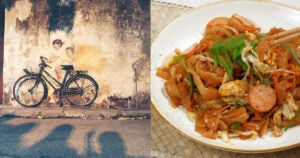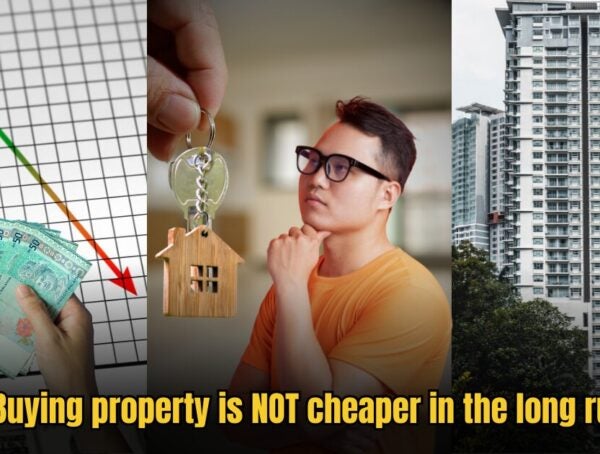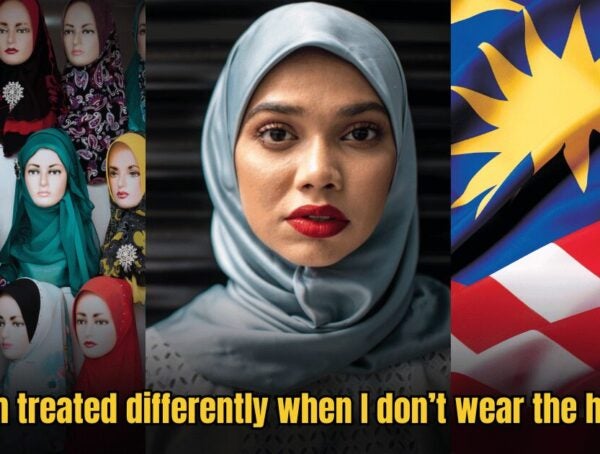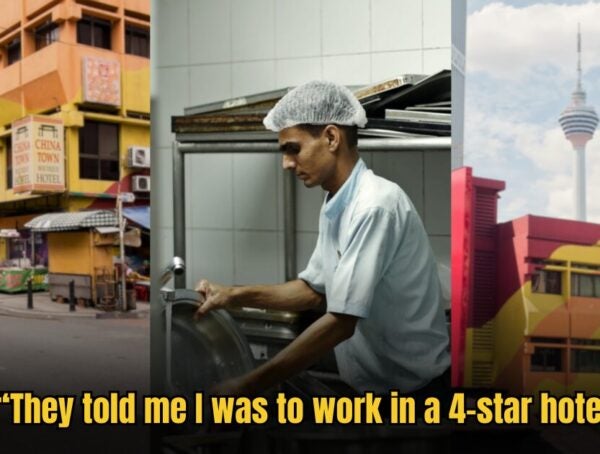Disclaimer: In Real Life is a platform for everyday people to share their experiences and voices. All articles are personal stories and do not necessarily echo In Real Life’s sentiments.
Subscribe to our Telegram for updates.
Malaysia and Singapore’s friendly rivalry has always been a lighthearted inside joke, touching on topics such as who’s really the king of street food, or which country is better to live in.
In June, a US-based Singaporean comedian went viral after her stand up routine ridiculed the MH370 flight tragedy, a move which many netizens called “insensitive”.
The stand-up comedian painted Malaysia as a backward country that didn’t advance as quickly as Singapore into “First-World Country” status.
While it is true that many Malaysians like this woman move to Singapore to find better career opportunities, what’s rarer is the reverse: Singaporeans who chose to move to Malaysia instead.
IRL interviewed Ariel, a 30-year-old Singaporean woman living in TTDI, Klang Valley to ask her all the reasons why she loves Malaysia. Here are her responses:
Reason #1. Malaysia has cheaper cost of food, petrol, and public transport

I know many Singaporeans say that food and cost of living is cheaper in Malaysia because they’re thinking about how far the dollar can stretch, but I think it’s still true even if you’re earning in Malaysian Ringgit.
One thing I found interesting is that public transport/petrol in Klang Valley is heavily subsidised like in Singapore, but because petrol is cheaper here in M’sia, many people choose to drive.
It’s so wild that some Malaysians even choose to live in far away Seremban & work in KL, whereas in Singapore if you drive, you’re basically considered very rich already.
The medical costs in Malaysian government hospitals are heavily subsidized, although it can get crowded. To save on costs, you can go to a private hospital, get the prescription, and buy medication at pharmacies like AA, Big Pharmacy, and Caring, where the medicines are way cheaper.
Food-wise, there are so many budget-friendly options. For under RM15, any economy rice hawker stall in KL will guarantee your tummy will be full. Parking wise, outdoor parking will cost RM10 for the whole day from morning to night.
Reason #2. Malaysians are more in tune with their spiritual roots
I think what I find unusual about Malaysia is the people’s connection to the land. I find that people are more spiritual here than they are in Singapore.
Here, everyone is so much more in touch with their heritage. People can tell you about their family tree, or who owns that local nasi kandar place that’s been here for decades.
When I talk to a local, they can tell me so many stories about the mythical Puteri Gunung Ledang, or about the historical rivalry of Hang Tuah and Hang Jebat. Everyone has their favorite story of a local legend that lives on in their memories and hearts.
Even when it comes to ghost stories, the most sophisticated of city folks can tell you about the spirits and the superstitions their culture has around them: the pontianak, toyol (bottle imp), and pocong (hopping corpse).
Somehow, they feel more real here than the ghost stories told around the campfire in NS.
Reason #3. Malaysians are more able to be themselves
In Malaysia, people are unapologetically themselves, and they allow and encourage others to be themselves as long as it doesn’t harm anybody. I like all the quirky personalities that I’ve met here.
It’s nice to meet people here. People take their time with life more, and they have time to have a conversation with you. I love having a cup of tea at the mamak at 12am. I like that people can slow down to do that.
Whereas in Singapore, I found it hard to meet people that I resonated with. While everyone’s experience of Singapore is different, I found that for me personally, most of my peers were too preoccupied with joining the rat race. People are too busy to make small talk, everyone’s thinking about getting ahead, and you have to fulfill a certain KPI, you know?
I wouldn’t say they’re materialistic, not in the traditional sense. It’s more like the average Singaporean likes physical, tangible qualifiers of success, like a nice condominium overlooking the Bay, or brand new Audi. To me that just feels unimaginative.
Reason #4. Malaysians are more ‘flexible’ around the rules
When it comes to interpreting ideas, laws, or systems, I think Singaporeans are rigid compared to Malaysians. Rules represent safety, certainty, and order, but they also have their downsides.
With the rigidity comes a certain fear-based mindset. Anything you do can be seen as wrong, so why try to rock the boat?
As a creative person who learnt aerial yoga and dance for a living, I felt that there’s a certain culture of “ticking certain boxes to fit in or get ahead” that I didn’t quite fit into. For me personally, I couldn’t truly feel creative or expansive or experimental at home.
The opposite of rigidity is fluidity. Fluidity in ways of thinking. I think in Malaysia, the flexibility around the rules creates a culture that’s a little bit more creative in their approaches.
For example, I’ve seen so many creative ways people drive here that would get you into trouble in Singapore. I’ve seen motorcyclists going on walkways or driving in the opposite direction on a highway, just to find a shortcut!
Personally, I believe it encourages you to think about what is right or wrong on a case by case basis. You have to use your common sense as opposed to fear and being a stickler for rules.
It’s not so much that I want to break the rules. It’s more like, if you do mess up, there’s some leeway to using your better judgment.
There’s pros and cons to that. It can mean people get away with bending the rules in their own favor. But it can also mean that people who make honest mistakes get second chances.
Reason #5. Malaysians are more accepting of each other’s cultures

If you suggested ideas to do things a different way than what is expected, most Singaporeans would all turn and stare blankly at you.
One time, I wore a sari to work in Singapore, and people stared like I was an alien from outer space (for context, I’m Singaporean Chinese). I feel like I get way less judged about dressing in a different culture here in Malaysia, because it’s common.
Emotional quotient is not the highest thing in Singapore. Singaporeans don’t have the same sensitivity that Malaysians have towards each others’ cultures. I think that’s why comedians like Jocelyn Chia are very popular in Singapore.
Meanwhile, Malaysians seem to instinctively know where to draw the line between acceptable joking material and stuff that isn’t okay to talk about. I guess that could be because they grew up being aware of different cultures and knowing what’s truly offensive and what’s not.
Overall, I love living in Malaysia and I can see myself settling down here one day. I just want to close by saying that my thoughts here are just one person’s context and upbringing, and different Singaporeans may have different perspectives of Malaysia.
I hope more Singaporeans would be open to trying different ways of living and taking life a little bit slower, and that moving to Malaysia might just be what they need to begin that journey.
How accurate is this person’s experience of Malaysia?
Share your thoughts in the comments!
Submit your story to ym.efillaerni@olleh and you may be featured on In Real Life Malaysia.
Read also: 4 Exciting Things In The Malaysia Budget That Gets Me Hopeful for 2024
4 Exciting Things In The Malaysia Budget That Gets Me Hopeful for 2024
You might also like
More from Real People
‘A RM100 fee cost a company 5 years of revenue’ shares M’sian
This story is about a Malaysian who learned that bureaucracy can be defeated simply by not arguing with it.A billing …
‘I quiet-quit, upskilled, and tripled my salary,’ shares M’sian engineer
This story is about a Malaysian who learned that loyalty without leverage leads nowhere in the corporate world.After years of …
‘I did everything right, and it still wasn’t enough’ shares M’sian graduate
This story is about a Malaysian graduate navigating big dreams in a job market where a degree no longer guarantees …


















